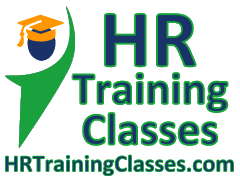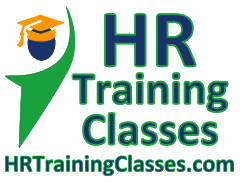Held each October, National Disability Employment Awareness Month (NDEAM) is a campaign that raises awareness about disability employment issues and celebrates the many and significant contributions of America’s workers with disabilities. To continue bringing this awareness, I want to share the following question I received from one of my clients this morning.
An employee gave me a doctor’s note to work only four hours a day and some other restrictions due to his diabetes. The employee supervisor said “we don’t accommodate reduced hours, so I guess he has to stay at home. This could be a problem correct?
My first thought was “Why did the supervisor say they couldn’t accommodate the reduced hours”? Where is the “accommodation mind-set of the supervisor? Before we say “No, I can’t accommodate” there are several factors HR need to identify, review and consider:
- How many employees do you have? Do you need to comply with certain federal laws such as ADAAA?
- Have you engaged in the interactive process?
- Is the reason the employee can only work four hours due to a mental or physical impairment?
- Are the restrictions such as the four hour a day only, permanent or temporary? If temporary, for how long?
If you would like to learn more about the laws surrounding reasonable accomodations under the Americans with Disability Act (ADA) as well as laws that that do or could impact you as an HR Professional while earning continuing education credits towards your SHRM or HRCI certification please join me at one of my upcoming Certificate Program Trainings on topics such as FMLA, ADA, Pregnancy Descrimination, Employment Laws, Interviewing Skills, OSHA and Sexual Harassment Prevention.
If you would like to learn more about our SHRM-CP®, SHRM-SCP®, aPHR™, PHR®, SPHR® Exam Prep Courses and Boot Camps please check out our upcoming Exam Prep Trainings and check out our Student Testimonials and Success Stories.
The reason you need to look at how many employees you have is that if you have fifteen employees or more you have to comply with the American with Disabilities Act Amendment Act (ADAAA). ADAAA basically says that if you have fifteen employees or more, you can’t discriminate against a qualified individual with a disability. When we say “qualified”, it means that this individual is able to perform the essential functions of the job with or without reasonable accommodations.
What is the interactive process? The interactive process is a documented conversation the employer will have with the employee to first determine if the employee is a qualified individual with a disability. Next is to understand what are the barriers, the obstacles that are preventing this individual from performing the essential functions of the job. Then we explore different alternatives to remove these barriers and agree in a reasonable accommodation. Lastly is to implement the accommodation, and follow up to ensure the reasonable accommodation which is chosen by the employer is effective.
You can only deny a reasonable accommodation if you are able to demonstrate that providing such a reasonable accommodation, would cause an undue hardship to the organization. Undue hardship is defined as something that could be significantly expensive or significantly disruptive to the normal daily operations of the organization.
Going back to my client: Yes, she is absolutely right! Denying the accommodation request could be a problem, a very serious and COSTLY problem. Just take a look at the EEOC charges claims filed by employees due to failure to accommodate, they just continue to increase.
Before we say “NO, I can’t accommodate”, change your mindset and think “YES, I CAN”!
Elga Lejarza-Penn, aPHR, PHR, SPHR, SHRM-CP, SHRM-SCP
If you would like to learn more about the laws surrounding reasonable accomodations under the Americans with Disability Act (ADA) as well as laws that that do or could impact you as an HR Professional while earning continuing education credits towards your SHRM or HRCI certification please join me at one of my upcoming Certificate Program Trainings on topics such as FMLA, ADA, Pregnancy Descrimination, Employment Laws, Interviewing Skills, OSHA and Sexual Harassment Prevention.
If you would like to learn more about our SHRM-CP®, SHRM-SCP®, aPHR™, PHR®, SPHR® Exam Prep Courses and Boot Camps please check out our upcoming Exam Prep Trainings and check out our Student Testimonials and Success Stories.

